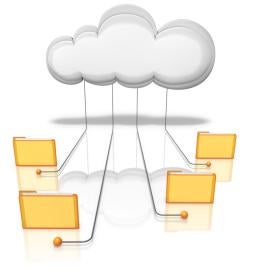The long-running technology and Internet boom has spawned extensive patent litigation as companies seek an edge over competitors by suing for infringement. Many of the entrepreneurial founders of technology companies are themselves extremely knowledgeable about the technologies on which their businesses are based. As such, parties often perceive advantages to having the inventor of a patent or of an allegedly infringing product testify concerning the relevant technologies. Among such advantages is that an inventor can testify based on firsthand experience and may thus be in the best position to credibly describe the relevant technologies to a jury. However, this strategy has downsides as well, insofar as courts have questioned how far a lay witness can go in testifying about technical matters before he or she must be designated as an expert witness (a designation which activates a whole set of requirements under the Federal Rules of Evidence). This issue was recently taken up in 523 IP LLC v. CureMD.com, 2014 WL 4746140 (S.D.N.Y. Sept. 24, 2014), in which the parties pursued contrasting strategies, with the plaintiff proffering its founder as an expert witness and the defendant offering its founder as a lay witness providing opinion testimony.
The plaintiff had obtained a patent on a system for routing after-hours messages from patients to physicians using physician-established criteria to determine the priority and destination (e.g., a physician's cellphone) of the message based on its content. The inventor of the patent was the plaintiff’s founder, Joseph Sameh, an entrepreneur who had previously founded businesses that provided patient communication solutions to medical practices.
The defendant, a company founded by two brothers, Kamal and Bilal Hashmat, offered to medical practices a comprehensive software solution that included a module called “Patient Portal,” which enabled patients to send messages to the staff of a given medical practice, including physicians. Messages sent through Patient Portal were stored in patients’ electronic medical charts.
Plaintiff alleged that the Patient Portal product infringed its patent and sued. In connection with the parties’ motions for summary judgment, Sameh submitted an expert report while Bilal Hashmat submitted a declaration as a lay witness. Each side then sought to exclude each other’s submissions under Daubert.
The Court first examined Hashmat’s declaration, which plaintiff had attacked as inadmissible expert testimony from a lay witness. After noting that defendant had not proffered Hashmat as an expert witness, the Court laid down some basic principles concerning opinion testimony from a lay witness. First, opinion testimony from a lay witness who is not an expert must be based on the witness’s personal knowledge, not “on scientific, technical or other specialized knowledge.” The opinion expressed by the lay witness may also not purport to tell the jury what conclusion to reach with respect to a question of fact within the province of the jury.
With these and other principles in mind, the Court declined to exclude testimony from Hashmat concerning the features and functionality of Patient Portal. Since Hashmat, as a founder of the defendant, had been deeply involved with the development of Patient Portal, he could testify from personal knowledge concerning how the product worked. However, the Court struck those portions of Hashmat’s testimony that improperly usurped the fact-finding function of the jury by essentially “telling the jury” that the plaintiff’s evidence did not support a finding of infringement.
In contrast, plaintiff proffered its founder, Sameh, as an expert witness. The Court reviewed Sameh’s qualifications and experience in significant detail and concluded that while Sameh was an expert in the field of doctor-patient communications, he was not an expert in the disciplines of computer programming or software engineering. In particular, the Court noted that while Sameh had developed the concept at the heart of plaintiff’s patent, he had hired programmers to translate that concept into actual software. Thus, Sameh was not qualified to opine on how defendant’s software infringed his patent.
The Court also rejected Sameh’s contentions regarding the proper construction of the claims comprising his patent. As the Court noted, claim construction is a matter of law for a court to decide and is not within the purview of an expert. That is, Sameh could not advise the Court to construe the claims in his patent in a manner that established infringement; indeed, the Court observed, “an inventor’s self-serving statements are rarely relevant to the proper construction of a claim term.”
The 523 IP decision illustrates some of the issues that must be navigated when proffering testimony from an inventor. Have you been involved in patent litigation in which an inventor was introduced as an expert or lay witness? If so, what issues did you encounter, and how did you deal with them?




 i
i


